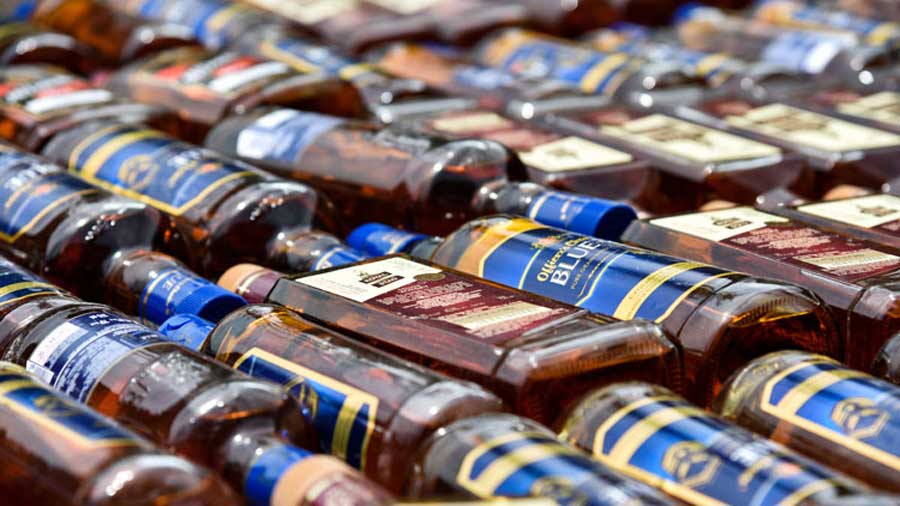At least three persons were killed and several others were battling for their lives in Bihar’s Vaishali district on Wednesday in yet another hooch tragedy in the state, which was declared dry by chief minister Nitish Kumar’s government in April 2016.
The incident occurred at Chaksinghar village under Jurawanpur police station located in the Raghopur diara (riverine) area. Incidentally, Raghopur is the legislative Assembly constituency of RJD leader Tejashwi Prasad Yadav.
“Altogether three persons have died in the incident while four others are undergoing medical treatment in the hooch tragedy,” Hajipur sub-divisional officer (SDO) Arun Kumar told The Telegraph.
The deceased have been identified as Jitendra Ram, Ramji Ram and Uday Ram — all belonging to the Dalit community. The toll could go up, as the condition of those admitted to hospital was critical.
Villagers said that around 10 people organised a fish and liquor party at the premises of a government primary school at Chaksingar on Tuesday night. The condition of several of those who participated in it deteriorated in a couple of hours with complains of vomiting, diarrhoea disorientation, and vision loss. Three of them succumbed on Wednesday morning.
Angry over the incident, the people of the area shouted slogans against the government and the local administration. They alleged that illicit liquor trade was thriving under the patronage of the police.
“We lost three of our people. They had consumed liquor and died after vomiting a few times. Everybody here knows that liquor is sold all around and police turn a blind eye to it,” villager Lalita Devi said.
Hajipur Sadar SDPO Raghav Dayal told this newspaper: “Nobody has been arrested so far.”
Around 16 people had died while four others had lost their vision after consuming illicit liquor in West Champaran district in July.
At least 38 people have lost their lives in hooch tragedies in Kaimur, Nawada, Muzaffarpur and West Champaran districts this year.
There have been a series of such incidents since Nitish imposed prohibition in the state, claiming that it will help cut down on crime, road accidents, and domestic violence, and at the same time will boost expenditure on health, food, clothes, education and lifestyle accessories.
However, majority of the people believe that none of the objectives of the liquor ban were achieved.
Sources in the government assert that lacklustre policing and a nexus between liquor mafia and law enforcement agencies have been the main reasons behind the failure of prohibition in Bihar.
Senior police officers have confided that the focus of the police has shifted to liquor ban instead of controlling crime, due to which law and order situation in the state has deteriorated sharply.
Notwithstanding raids and seizure of illicit liquor in raids by the police and excise department, the mafia has opened supply lines from Punjab, Haryana, Uttar Pradesh, Jharkhand, Bengal and Nepal. It has also established a liquor distribution network for the people.
Nitish had expected to gain politically from prohibition, especially the votes of women. But the jury is still out on the issue as he just managed to scrape through and retain the chief minister’s post in the 2020 Assembly elections.
Economically, the state has been losing over Rs 5,000 crore annual revenue it used to get from the sale of liquor during the pre-prohibition era. It has also led to a loss of a large number of small jobs and businesses that thrived around liquor shops, bars and restaurants.










